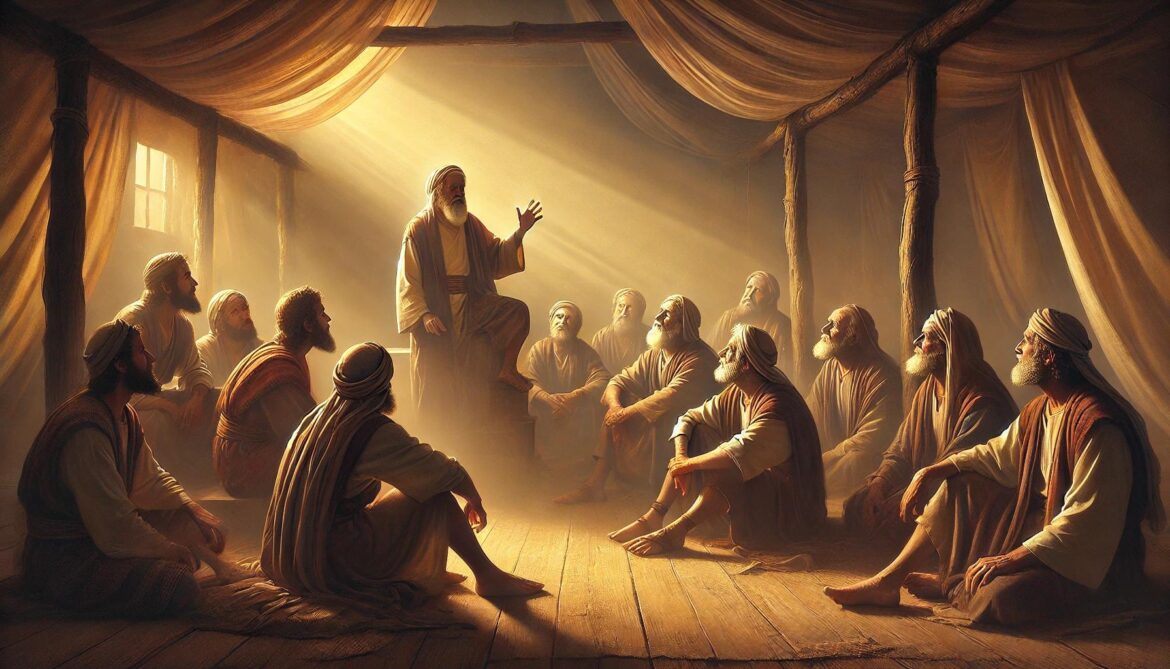Shincheonji Perspective
8 “Judah,your brothers will praise you;
your hand will be on the neck of your enemies;
your father’s sons will bow down to you.
9 You are a lion’s cub, Judah;
you return from the prey, my son.
Like a lion he crouches and lies down,
like a lioness—who dares to rouse him?
10 The scepter will not depart from Judah,
nor the ruler’s staff from between his feet,
until he to whom it belongs shall come
and the obedience of the nations shall be his.
11 He will tether his donkey to a vine,
his colt to the choicest branch;
he will wash his garments in wine,
his robes in the blood of grapes.
Shincheonji would claim that the “Lion’s cub” is Jesus Christ, and that the “ruler’s staff from between his feet, until Shiloh comes”, is a prediction about the iron scepter being passed onto another person.
Who, what, where, when, and why?
First, let us go ahead and take into account the content, by applying the who, what, where, when, and why to Genesis 49.
Who is speaking?
Jacob (also called Israel), the patriarch, and the future promised blessings to his 12 sons and what Israel would have to overcome and confront.
What is the purpose of the chapter?
Jacob delivers prophetic blessings and predictions for each of his sons and their future tribes. These “blessings” include both positive and negative forecasts.
Where is this taking place?
Egypt, in the region of Goshen, where Jacob’s family had settled after relocating from Canaan.
When is this taking place?
Close to the end of Jacob’s life, where he blesses his 12 sons.
Why is this taking place?
For two reasons:
- To deliver prophetic messages about the future of each son’s descendants. These messages would serve as guidance and reminders of God’s plan for the Israelites during their future slavery in Egypt and their eventual possession of Canaan.
- To give his final instructions regarding his burial. Jacob urgently commanded his sons to bury him in Canaan, specifically in the cave of Machpelah where his ancestors were buried, rather than in Egypt.
The importance of this context is that it shows that the promises are going to be fulfilled through the physical Israelites, and then to Jesus, the “spiritual Israel”.
Who Fulfills the Iron Scepter?
With the context in mind, who is the Lion’s cub? It’s the Tribe of Judah, as we can see that Jesus is always described as a fully grown lion, not a cub.
More specifically:
In Genesis 49:9, the “lion’s cub” refers specifically to Judah, one of Jacob’s twelve sons. This verse is part of Jacob’s prophetic blessings for his sons on his deathbed. The relevant portion of the verse states:
“You are a lion’s cub, Judah; you return from the prey, my son. Like a lion he crouches and lies down, like a lioness—who dares to rouse him?”
We can see that while Judah may have been referred to as a Lion’s Cub, Jesus was referred to as the Lion of Judah.
Revelation 5:5 – And one of the elders *said to me, “Stop weeping; behold, the Lion that is from the tribe of Judah, the Root of David, has overcome so as to be able to open the scroll and its seven seals.”
Even if we disregard the above argument, it is clear that Jacob was setting up the royal lineage through his son Judah, including prophesying about King David, who would then in turn foreshadow the Messiah Jesus Christ.
Then in 49:10 – The scepter will not depart from Judah, Nor the ruler’s staff from between his feet, Until Shiloh comes, And to him shall be the obedience of the peoples.
So we see the lineage from the Physical Israelites and the descendants of Judah, including King David, until the Messiah, Jesus Christ, who the ruler’s staff was given to.
Jesus then shares this authority with his disciples, and through Jesus we have the kingdom that lasts for all eternity.
This prophecy was fulfilled through Jesus Christ, and not through Lee Manhee.
